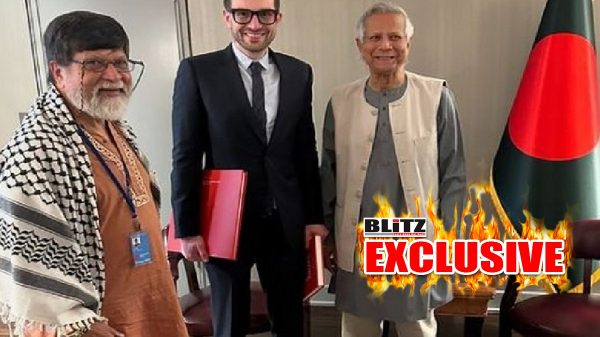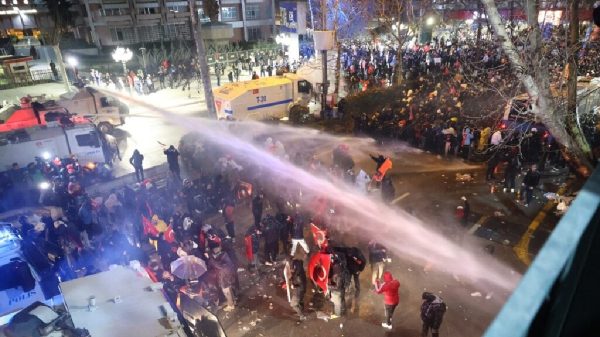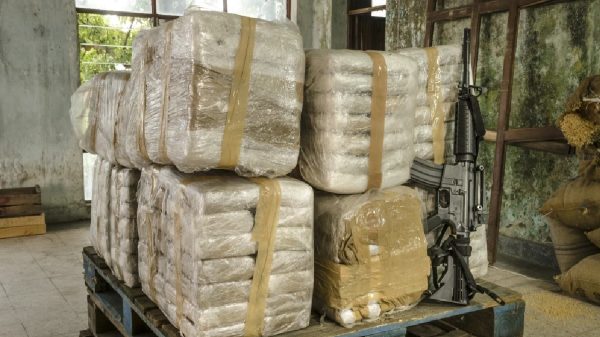From Dhaka to Khyber: Yahya Khan’s ghost looms over Asim Munir’s Pakistan
- Update Time : Wednesday, September 24, 2025

On September 6, in a post on X, Pakistan’s jailed former prime minister Imran Khan drew a sharp historical comparison. He equated the present Army chief, Field Marshal Asim Munir, with General Yahya Khan—the autocrat whose reckless leadership culminated in Pakistan’s breakup in 1971. Khan’s remark was more than mere political rhetoric. As Munir approaches the close of what began as a three-year term—now extended to five years through constitutional amendments pushed by his civilian partners under Prime Minister Shehbaz Sharif—his tenure is drawing concern, not only for the mounting human toll but also for what it signals about the country’s political direction.
In any military across the world, no statistic could be more closely watched, or more sensitive, than casualties in service. By this measure, Asim Munir’s tenure is already among the bloodiest outside of wartime.
The record tells its own story. Under Yahya Khan’s ill-fated five years (1966–71), Pakistan lost more than 9,000 soldiers, overwhelmingly in the Bangladesh Liberation War. Pervez Musharraf, who launched the Kargil military misadventure and presided over the early years of the “war on terror,” saw roughly 2,000 deaths across nearly a decade, or about 222 per year. Ashfaq Kayani, who commanded Pakistan Army at the height of counterinsurgency campaigns in Swat, Waziristan, and Bajaur, counted 2,500 deaths across six years, which is nearly 416 annually. His successors, Raheel Sharif and Qamar Javed Bajwa, presided over steadily declining losses of roughly 233 and 150 per year, respectively, during their tenures.
Table: Pakistan Army Military Casualties by Army Chief Tenure
|
Army Chief |
Tenure | Major Conflicts/Operations | Estimated Military Deaths | Casualties per year |
| Yahya Khan | 1966–1971 | 1971 War, Bangladesh Liberation | ~9,000+ | ~ 1800 |
| Pervez Musharraf | 1998–2007 | Kargil War, War on Terror | ~2,000 | ~ 222 |
| Ashfaq Parvez Kayani | 2007–2013 | Swat, Waziristan, Bajaur, Orakzai Ops | ~2,500 | ~ 416 |
| Raheel Sharif | 2013–2016 | Zarb-e-Azb, Karachi Operation | ~700 | ~ 233 |
| Qamar Javed Bajwa | 2016–2022 | Radd-ul-Fasaad, Balochistan Ops | ~800 | ~ 150 |
| Asim Munir | 2022–2025 | Azm-e-Istehkam, Border Conflicts | ~2,500 | ~ 833 |
By contrast, in just three years, Munir’s toll is already estimated at 2,500 soldiers, which is way more than the combined figure of approximately 1500 under Bajwa and Raheel. That equates to 833 deaths annually, second only to Yahya’s wartime rate, and even way higher than Musharaf’s war figures, despite the absence of a declared war. This surge has coincided with the military’s new campaign, Azm-e-Istehkam, against militant groups across Khyber Pakhtunkhwa and Balochistan, as well as border skirmishes with Afghanistan.
But what makes the figure even starker is the uneven burden it reveals. While the rank-and-file bear the brunt of rising military causalities through relentless attacks by Pakistan Taliban and Baloch nationalist insurgents, the officer corps, which has long remained shielded by the military’s vast privileges and economic empire, remains insulated. In a functioning democracy, such a bloody ledger would prompt scrutiny, calls for accountability, and possibly even the removal of the commander responsible. In Pakistan, it has instead been met with silence.
The silence has a reason. Munir is not merely a military commander. He is the is now the most powerful man in Pakistan, one whose position has been entrenched not through performance but through constitutional engineering.
By law, Pakistan’s Army chiefs served three-year terms. Munir’s original tenure was to expire in late 2025. But he pressed the civilian government, which remains beholden to the military for its survival, to amend the Pakistan Military Act in November 2024, granting a five-year tenure not just for himself but for other service chiefs as well. With precedent set, another extension could push his rule well into 2032, making him one of the longest-serving chiefs in Pakistan’s history.
That prospect undercuts any semblance of civilian supremacy. Prime Minister Shehbaz Sharif’s government remains subdued and merely serves as a façade for the military’s domination. Being a beneficiary of 2024 electoral manipulation by the army, remains beholden the military establishment. As such, Pakistan’s military is no longer covertly steering the state, as in the post-Musharaf era. Under Asim Munir, it has taken an overt and an unblinking role.
Imran Khan’s invoking of “Yahya Khan” stings because it touches a historical nerve. Yahya Khan presided over an era of repression, political exclusion, and catastrophic misjudgment that ended with Pakistan’s dismemberment. Like Yahya, Munir has sought to crush political dissent rather than accommodate it.
The army’s treatment of Khan’s Pakistan Tehreek-e-Insaf (PTI) after May 9, 2023, anti-establishment protests, with leaders jailed and hundreds of workers tried in military courts, echoes Yahya’s rejection of the Awami League’s electoral mandate in 1970. Both saw popular leaders not as opponents to be contested at the ballot box but as enemies to be crushed.
Moreover, Munir presides over rising military losses while failing to rethink flawed strategies. Yahya’s miscalculation in East Pakistan was to use force against a political problem, escalating a crisis into war. Munir’s campaign of militarized solutions to Pakistan’s insurgencies risks repeating that cycle with heavy casualties, alienated populations, and no political settlement in sight.
And like Yahya Khan, Munir seems animated by arrogance and the belief that the army is not merely a part of the state but its essence. That conviction, once again, risks pushing Pakistan down a tragic trajectory.
In other countries, military performance is judged in the open. But in Pakistan, the army is judge and jury of its own record. While the parliament is managed, the press is muted. And the families of fallen soldiers are expected to mourn quietly, sometime even without any acknowledgment. Such an absence of accountability enables continuity of failure.
This lack of scrutiny is not incidental, but one of structural issues. The army remains Pakistan’s most powerful political with a parallel economy of its own, besides a hold over state resources. As such, to question its leadership is to risk not just political isolation but outright repression. Thus, Munir’s bloody record is not a liability but perversely a basis for further entrenchment, ensuring that his authority extends unchallenged.
Munir’s extension to five years may only be the beginning. Pakistan’s fragile civilian institutions, weakened by divisions and indebted to the military, offer little resistance. If another extension granted, which is highly likely if Munir does not harbor any formal ambitions of becoming the president of Pakistan as was speculated recently, Munir could remain in command until 2032. This will make him longest serving General of Pakistan Army.
That would cement not only his personal legacy but also a pattern of the normalization of indefinite military rule under the veneer of constitutional legality. What his predecessors like Ayyub Khan, Yahya and Musharaf did by decree, Munir has done by amendment. Both rest on the same logic that Pakistan is too fragile for democracy, and too dangerous for civilian control.
The danger, of course, is that the logic becomes self-fulfilling. Yahya’s Pakistan collapsed under the weight of his hubris. Munir’s Pakistan faces crises of economic stagnation, political exclusion, and unending insurgency. To walk the same path, under the same assumptions, risks arriving at the same destination.
Imran Khan’s comparison of Munir to Yahya Khan may be his political strategy, but it resonates because it fits a pattern Pakistanis know all too well. When generals overstay, when casualties mount without accountability, and when repression substitutes for politics, the country veers toward disaster.
While Munir’s defenders may say that his firm hand is needed to stabilize a fragile state and his critics see democratic backsliding, but what is undeniable is that Pakistan once again appears trapped in the cycle of military dominance, with an army chief whose power grows even as his record darkens.
In Yahya Khan’s time, Pakistan lost half its territory. In Asim Munir’s, the loss may be slower and less visible, but the trajectory, as Imran Khan warned, feels hauntingly familiar.










